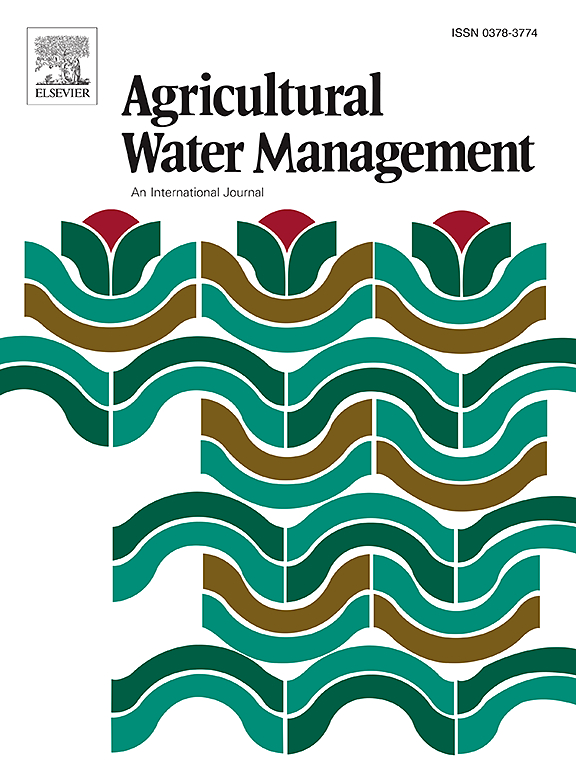Evaluating the impact of drought and water restrictions on agricultural production in irrigated areas through crop water productivity functions and a remote sensing-based evapotranspiration model
IF 6.5
1区 农林科学
Q1 AGRONOMY
引用次数: 0
Abstract
In Mediterranean regions, climate change is leading to reduced precipitation, along with more frequent and severe droughts, and prolonged periods of water scarcity. In this context, as reservoir levels drop dramatically, some irrigated agricultural areas are compelled to impose water restrictions on farmers to enhance efficiency and protect crops. This study aims to evaluate the impact of varying levels of water restrictions on crop productivity across different crops, taking into account water allocation rights and the irrigation management practices of each irrigation district. Since crop yield is closely linked to the water used (crop actual evapotranspiration, ), this study proposes a novel approach based on using crop water productivity functions and a remote sensing-based surface energy balance model to spatially estimate . The research was conducted across fourteen irrigation districts in Lleida and Girona, Spain, simulating six scenarios with different levels of precipitation and water rights reductions. The findings showed that reduced water availability significantly negatively affected both simulated evapotranspiration and crop yields across all districts, with variations between districts and crops. On average, yield reductions reached up to 18 % in Lleida and 16 % in Girona under the least restrictive scenarios, while more severe restrictions caused decreases of 48 % and 28 %, respectively. This approach offers valuable insights for water management agencies regarding the effects of water restrictions on crop yield losses, enabling them to make more informed decisions. Incorporating this methodology into emergency drought management plans is essential for fostering resilience in a changing climate.
通过作物水分生产力函数和基于遥感的蒸散模型评估干旱和水分限制对灌区农业生产的影响
在地中海地区,气候变化导致降水减少,干旱更加频繁和严重,水资源短缺时间延长。在这种情况下,由于水库水位急剧下降,一些灌溉农业地区被迫对农民实行用水限制,以提高效率和保护作物。本研究旨在评估不同程度的水资源限制对不同作物作物生产力的影响,同时考虑到每个灌区的水资源分配权和灌溉管理实践。由于作物产量与作物实际蒸散量密切相关,本研究提出了一种基于作物水分生产力函数和基于遥感的地表能量平衡模型的蒸散量空间估算方法。这项研究在西班牙莱伊达和赫罗纳的14个灌区进行,模拟了6种不同程度降水和水权减少的情景。研究结果表明,水分有效性的降低对所有地区的模拟蒸散量和作物产量都有显著的负面影响,不同地区和作物之间存在差异。在限制最少的情况下,莱伊达和赫罗纳的平均减产幅度分别达到18%和16%,而更严格的限制分别造成48%和28%的减产。这一方法为水资源管理机构提供了有关限水对作物产量损失影响的宝贵见解,使他们能够做出更明智的决策。将这一方法纳入紧急干旱管理计划,对于加强应对气候变化的能力至关重要。
本文章由计算机程序翻译,如有差异,请以英文原文为准。
求助全文
约1分钟内获得全文
求助全文
来源期刊

Agricultural Water Management
农林科学-农艺学
CiteScore
12.10
自引率
14.90%
发文量
648
审稿时长
4.9 months
期刊介绍:
Agricultural Water Management publishes papers of international significance relating to the science, economics, and policy of agricultural water management. In all cases, manuscripts must address implications and provide insight regarding agricultural water management.
 求助内容:
求助内容: 应助结果提醒方式:
应助结果提醒方式:


